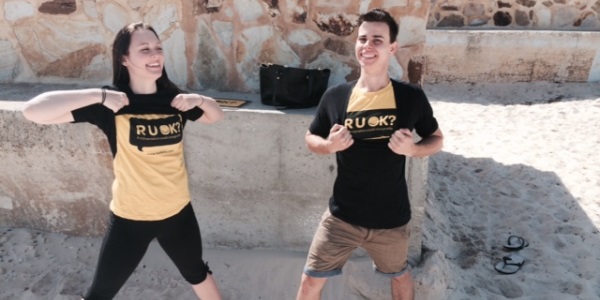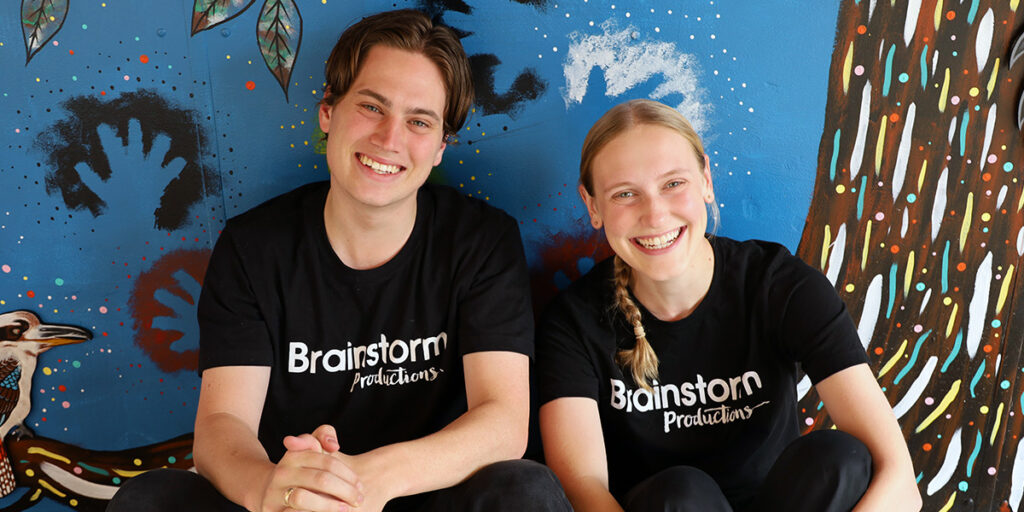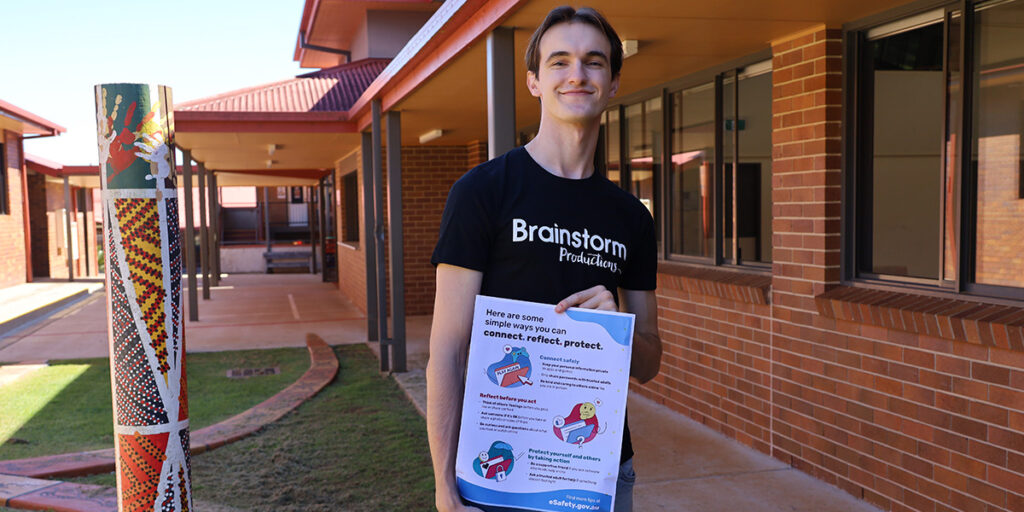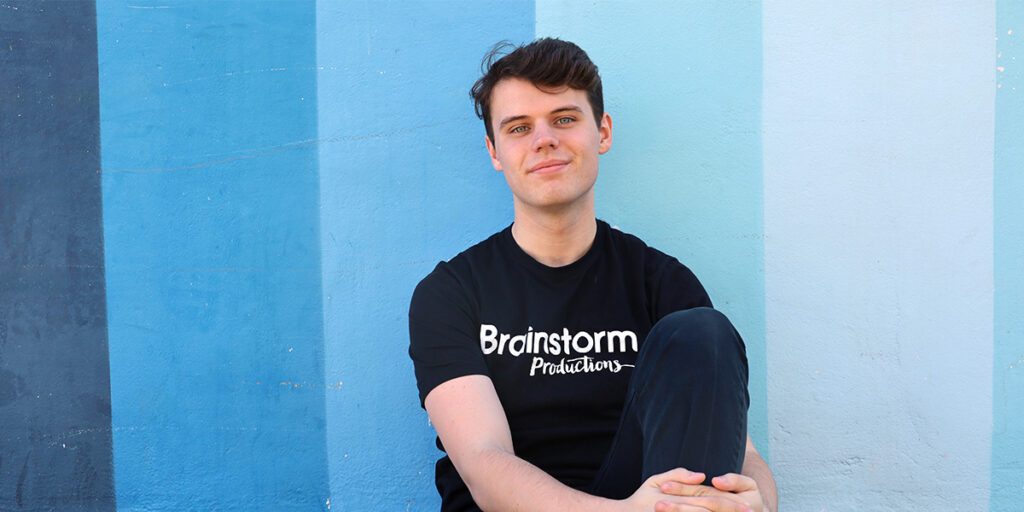Taking the first step and asking someone if they’re OK can take a bit of courage, especially for younger children. How do I ask it? What do I do if someone isn’t ok? What if a friend is really sad? These are just some of the questions that might be swirling around a child’s head. But learning how to overcome this uncertainty can have a profound effect, with children getting to share an emotional connection and learning how to navigate some of life’s challenges.
Being Brave:
Brainstorm Productions performance Being Brave helps young children to understand that asking the question “Are you okay?” and taking the time to listen are only the first steps. While some situations and problems can be overcome by children talking to one another, more serious issues must be solved by involving an adult. Students are urged to help each other by seeking advice from a teacher, parent, school counsellor, a trusted adult or by phoning the Kids Helpline on 1800 55 1800. Many children are embarrassed to say they are experiencing difficulties and Being Brave encourages children to learn how to talk about their problems and show their feelings in an appropriate way.
Children are also taught that they should check-in with their friend a few days later to ensure they did seek some adult help. If the friend has not spoken to an adult or they did make the effort but didn’t find it helpful, children are encouraged to go to a trusted adult themselves and let them know they’re worried about their friend. If the issue is a serious or harmful problem, students are taught to talk to a teacher or adult immediately.
One of the uncomfortable emotions Being Brave addresses is anxiety. Macquarie University psychology lecturer Dr Carolyn Schniering has stated that anxiety problems are the most common emotional disorder that children experience and it’s important to understand that anxiety is not something to be afraid of. As Dr Schniering says, “It’s a normal emotion and an important part of how we engage with the world.” Using live theatre, Being Brave provides students with simple strategies to help build their resilience, emotional wellbeing and to better cope with their worries. The performance also helps students to open up to their friends and provides ideas on how to have a meaningful conversation.
Asking “R U OK?”:
Since 2014 Brainstorm Productions has worked closely with the not-for-profit organisation R U OK? to provide advice and tips to students on how to ask someone if they’re okay and to regularly check-in with their mates. With more and more children using smart phones and the web for communication, sadly, the skills required to establish rapport and real life connections can be almost unknown for some kids. As adults, we know the art of conversation takes practice, but, for kids reliant on technology, initiating and participating in an important conversation can be a real struggle. Luckily, it is a skill set that can be learnt with practice.
Being Brave is also about learning how to say “No” to being bullied or standing up for someone who is being bullied, to reach out to children who might be lonely or upset and to learn non-aggressive alternatives for dealing with conflict.
Teacher Testimonials for Being Brave:
While the program is very grounded, it is also extremely entertaining for younger students, as applauded by these schools:
“Engaged Students with difficult themes of resilience, divorce, loss, bullying, rejection and letting go of things you love. 10/10” – Good News Lutheran School
“Fantastic, funny, moving and engaging. Helped develop emotional resilience in the face of adversity.” – Warners Bay Public School.
“Most enjoyable at all levels. Students were engaged and captivated through the entire performance and participated enthusiastically in question time at the end.” – Teven-Tintenbar Public School.
Brainstorm Productions program Being Brave aims to help students to deal with difficult situations in their own lives and help support their friends who may be struggling. While all children will experience fear and uncomfortable emotions, Being Brave helps children cope with a range of feelings and to know that it is OK to ask for help.
Find out more:
To read more teacher reviews click here.
To find out more about Being Brave click here.
To find out more about R U OK? click here.




